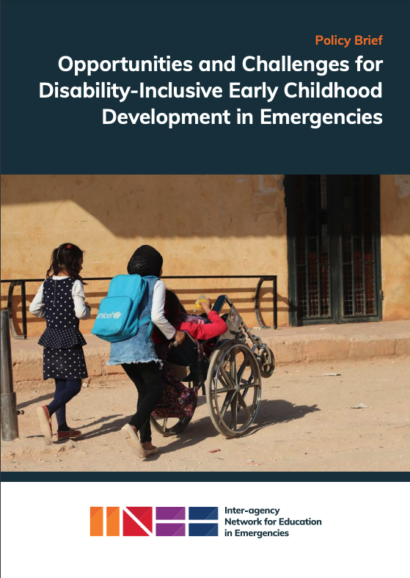
This policy brief presents the current state of disability-inclusive Early Childhood Development in Emergencies programming, and was commissioned by the Inter-agency Network for Education in Emergencies (INEE) under the auspices of the INEE Early Childhood Development Working Group.
This brief advocates for and highlights the benefits of disability-inclusive ECDiE. It includes examples of good practices in disability-inclusive ECDiE programming from around the world, and provides recommendations for more inclusive ECDiE, encouraging governments, multilateral agencies, donors, and implementing organizations to:
- Improve the collection, storage, use, and dissemination of age, sex and disability (by type) disaggregated data to ensure inequities are targeted and to strengthen humanitarian planning and investment.
- Standardize screening and identification tools for use globally to identify disability and developmental delays, improving early detection and enabling informed programming and investment.
- Collaborate to build stronger and more efficient humanitarian coordination between relevant sectors.
- Develop a set of standards for disability-inclusive ECDiE for quality in early childhood interventions and development programmes.
- Promote wider dissemination of models for and approaches to disability-inclusive ECDiE, including evidence on cost and the immediate and long-term benefits of inclusion, to help make the case to donors and governments.




